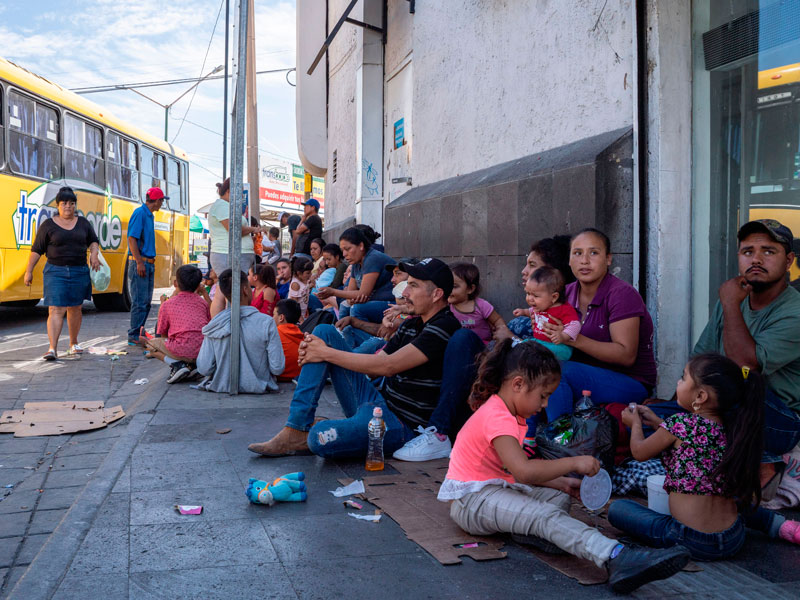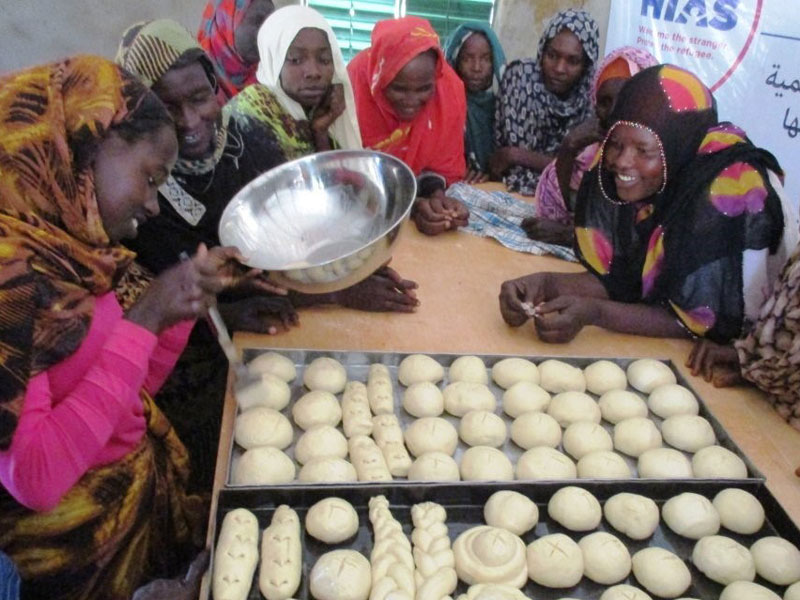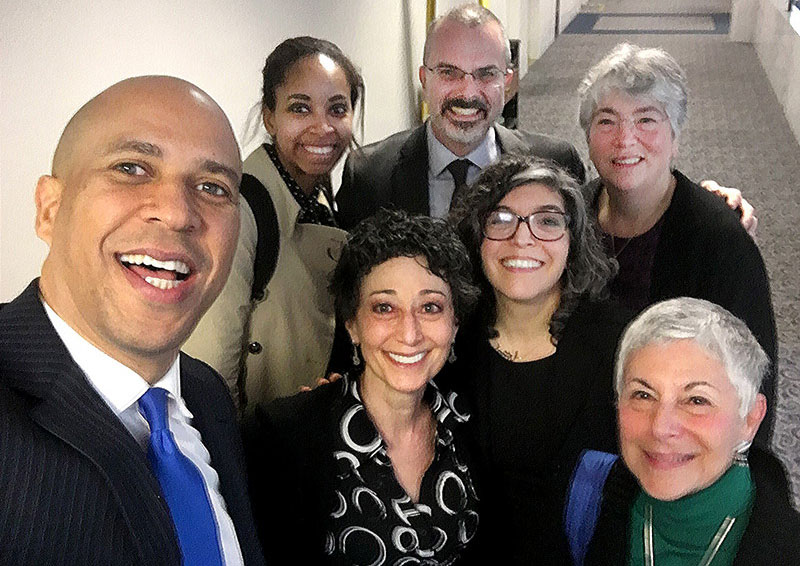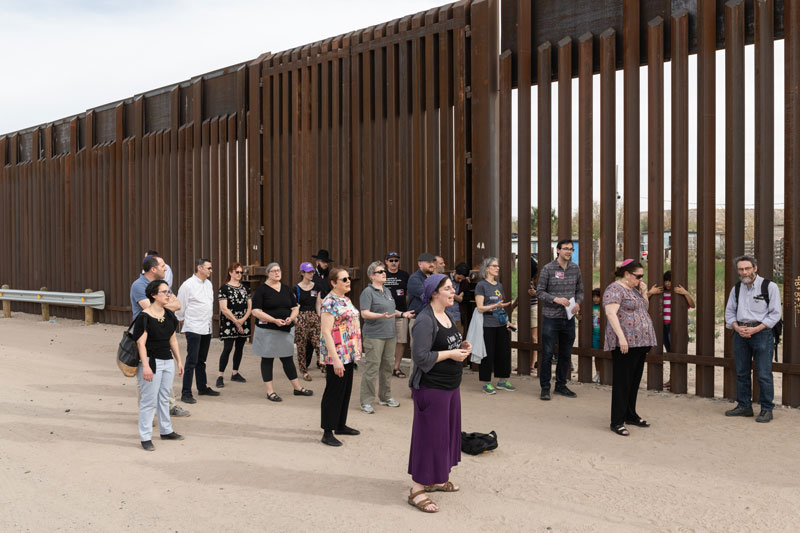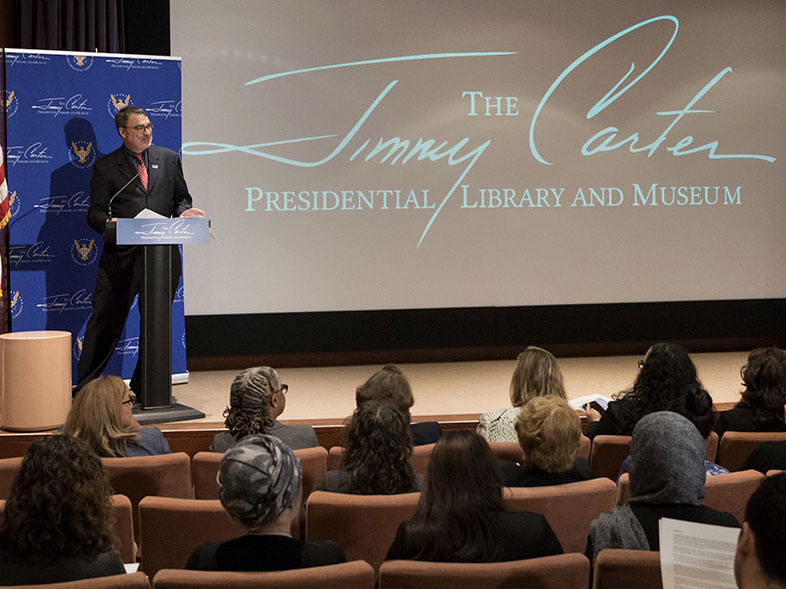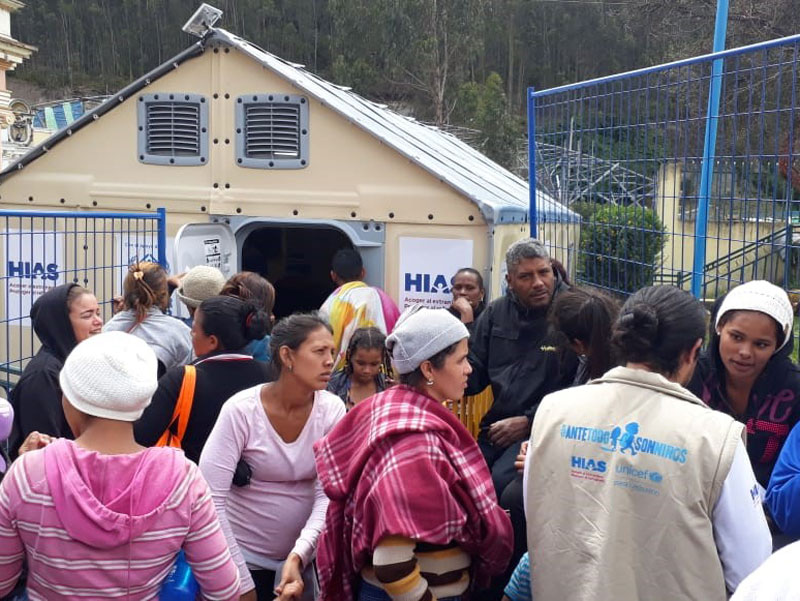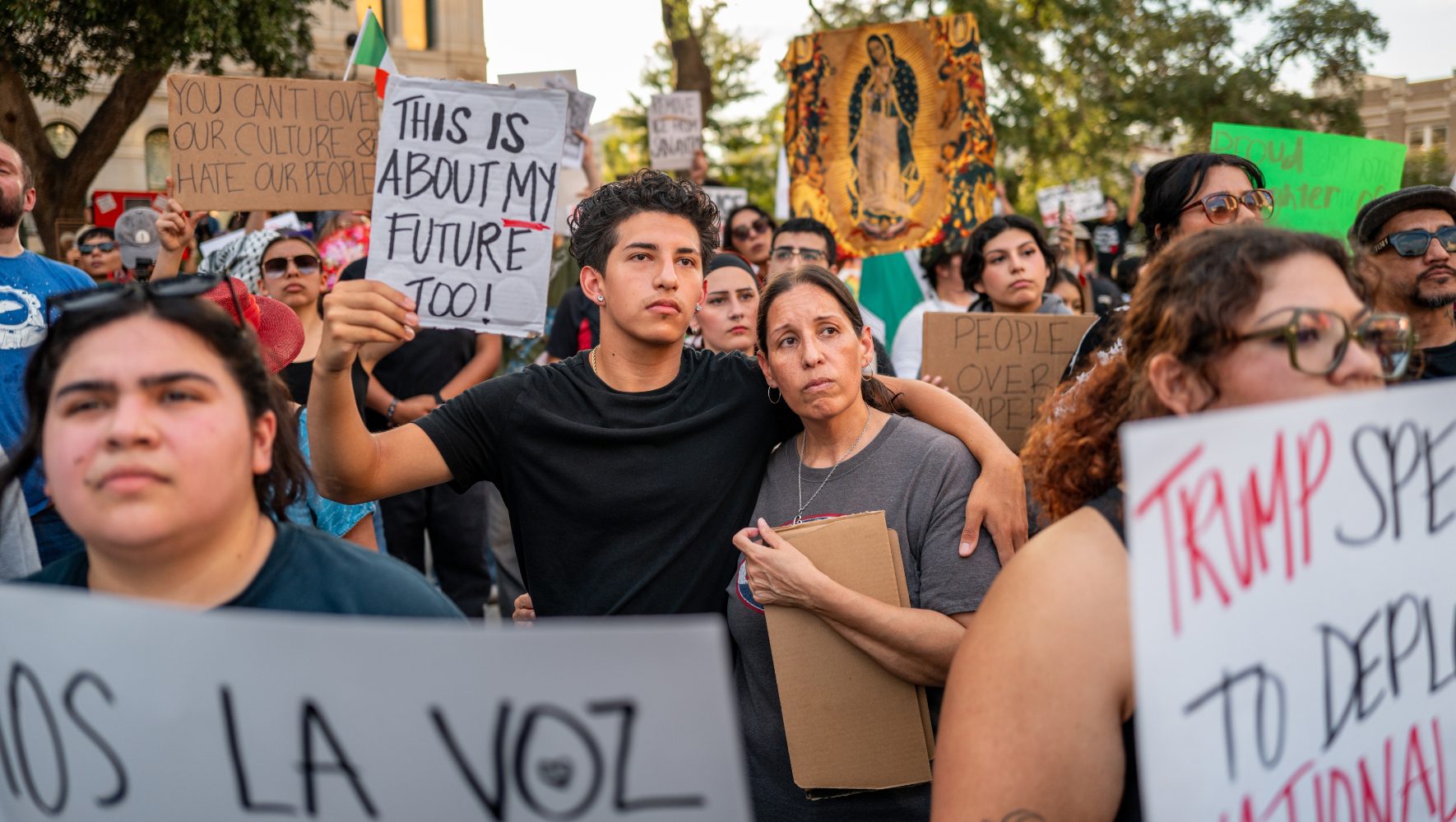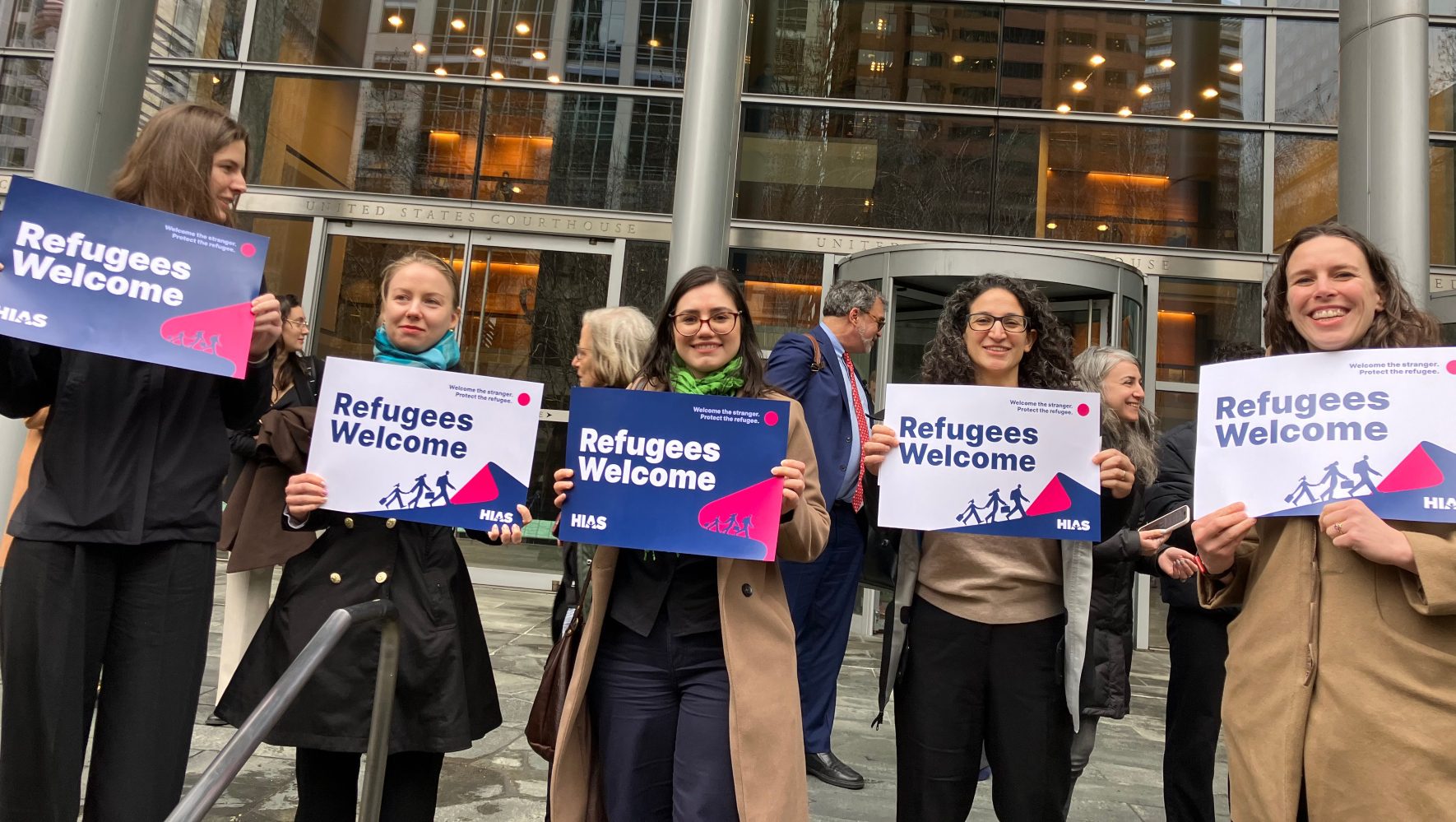2019 YEAR IN REVIEW: Determination and Global Growth
By Sharon Samber, HIAS.org
Dec 26, 2019
In the refugee assistance world it is hard not to overuse the word “challenging.” It unfortunately, and often only diplomatically, characterizes the growing refugee crisis, the political situation in a number of countries including the U.S., and, of course, the plight of refugees themselves.
This year, according to the U.N Refugee Agency (UNHCR), there are nearly 26 million refugees worldwide, the highest number ever recorded. Of those, more than 1.4 million refugees cannot remain safely where they are and are in need of resettlement. In many areas of the world, people are fleeing violence and persecution and in the U.S. the Trump administration has continued its actions against asylum seekers at the U.S. southern border and set the refugee admissions cap to an historic low.
And yet, HIAS is encouraged. Not just that our work will continue to have an impact despite the mounting pressures contributing to the record 70.8 million displaced people in the world, but that we are doing more than ever before. HIAS’ mission to provide legal protection, psychosocial care, economic inclusion programs, and gender-based violence (GBV) prevention and response programming not only continues, but is growing.
In 2019, HIAS opened new offices in Mexico, Peru, and Colombia, countries experiencing an unprecedented influx of refugees and asylum seekers. In a new HIAS office in Belgium we are engaging the European Jewish community and developing ties to EU institutions. With this expansion, the organization’s network now reaches 15 countries across the United States, Mexico, Europe, Africa, the Middle East, Central and South America and the Caribbean.
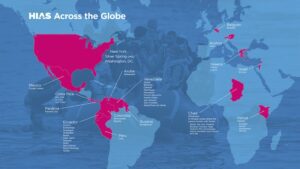
In 2019 HIAS opened new offices in Belgium, Colombia, Mexico and Peru, and grew our work at the US/ Mexico border and programs in Ecuador and Venezuela.
With that eye to the future, we now take a look back at some important moments in 2019:
-
More than 50 people from around the country came to Washington, D.C. in February to advocate for refugees in the offices of senators and representatives. Former refugees from Syria, Afghanistan, Democratic Republic of the Congo, Burundi, Bhutan, Russia, and Uganda joined advocacy training sessions and told their own stories.
-
HIAS continued to organize delegations to the US/Mexico border. A number of volunteer legal delegations helped asylum seekers and human rights delegations as well, such as the March clergy trip of more than 20 rabbis, cantors, and activists who spent three days bearing witness, touring shelters, and meeting with immigration advocates.
-
In refugee camps in Chad, HIAS helped facilitate training for 214 vulnerable women to learn techniques of breadmaking, all part of a project funded by UNHCR and the U.S. State Department. The women are now able to support their families with the proceeds they get from selling the bread, and the skills they have learned enabled them to move forward with their lives, particularly those survivors of GBV.
-
HIAS released a new HIAS Passover Haggadah which offers a deeper exploration of the global refugee crisis. Thousands of families and groups used it during their Seders, exploring the connections between the ancient Passover story and today's refugees.
-
In June, a distinguished group of former government officials, refugee rights leaders, and supporters of refugee protection gathered at the Jimmy Carter Presidential Library & Museum in Atlanta for a celebration of the Refugee Act of 1980. Watch the panel discussions on the Refugee Act here, Origins of the Refugee Act here, and Implementation of the Refugee Act here.
-
The American Jewish community continued to respond to the global refugee crisis this year with more synagogues joining the ranks of HIAS' Welcome Campaign. The current total is 444 congregations across the country signed on to advocate for refugee protection around the world and supporting and welcoming refugees in the United States.
-
In September, the Trump administration announced a refugee resettlement ceiling of 18,000 for Fiscal Year 2020, a 40% cut from last year’s number amidst the largest global refugee crisis in recorded history. Historically, the annual refugee admissions ceiling has averaged 95,000 per year. The cuts continue the trend that began when President Trump took office and immediately took steps to reduce the number of refugees coming into the country.
-
Over the summer, nearly 500 activists met with more than 50 members of Congress in 18 states as part of HIAS’ nationwide Asylum Advocacy Campaign. From Alaska to West Virginia, activists reached out in both Democratic and Republican districts, to meet with representatives during the August recess. HIAS’ largest district advocacy project yet allowed grassroots leaders across the country to voice their outrage at the treatment of asylum seekers at the U.S.-Mexico border and hand-deliver HIAS’ Clergy Letter in Support of Asylum Seekers, signed by over 1500 Jewish clergy from 48 states.
-
More than 300 were on hand in New York in November for "A Night for Hope & Welcome," honoring musician Regina Spektor, who was resettled in the U.S. by HIAS; Dr. Ruth K. Westheimer, media personality and a refugee from Nazi Germany; and Jones Day, the international law firm that provides pro bono support to HIAS.
-
In the fiscal year ending in September 2019, HIAS welcomed 2,307 refugees into 17 communities across the U.S. Despite unprecedented pressures, our U.S. Affiliate Network continues to persevere, meeting initial resettlement needs, employment needs, and often the need for extended case management to deal with vulnerabilities.
-
In November HIAS, filed suit against President Trump over his executive order giving state and local officials authority to block refugee resettlement in their jurisdictions. HIAS, joined by Church World Service (CWS), and Lutheran Immigration and Refugee Service (LIRS) are taking this action because the administration is attempting to enact a state-by-state, city-by-city refugee ban.
-
HIAS’ opened a Mexico office in Juarez and immediately started to provide legal services, “Know Your Rights” workshops, and other assistance. Plans are now underway to expand to Monterrey, Tijuana, and Mexicali to meet the needs of the growing number of asylum seekers in those regions.
-
Responding to the Venezuelan crisis–now the largest refugee crisis in the world–has fueled HIAS’ work and expansion in South America. HIAS Colombia meets with HIAS Venezuela to discuss cross-border case referrals and management. In August HIAS Ecuador responded to a border emergency as the Ecuadorian government announced that all Venezuelan citizens would need a visa to enter the country.
-
HIAS Greece continues to assist asylum seekers and is bracing for the effects of a new 2020 law on international protection that will go even further to reduce refugees’ procedural rights. The office is also monitoring the deteriorating conditions at the Moria Refugee Camp on the island of Lesvos, where nearly 15,000 refugees live in a facility with an official capacity of 2,840.
